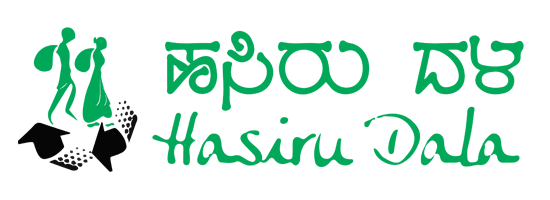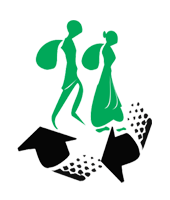
The public health system is not accessible for many waste pickers, either due to lack of documentation for free health or because hospitals are not close to their homes. Navigating an official hospital system is not easy for waste pickers who are not literate or who just have basic reading skills. Many resort to unqualified quacks for informal diagnoses and immediate relief from illness or pain.
Considering the waste pickers have a physically demanding profession, with backbreaking hours to pick waste and recyclables from the street and carry heavy weight they face regular musculoskeletal pain. Their income fluctuates thereby impacting their ability to buy nutritious food, and lack of access to clean water, decent housing and toilet facilities also adds stress.
Chewing tobacco is a common practice among waste pickers who often resort to it to reduce their hunger. From our data, Hasiru Dala has observed that 40% of waste pickers lack oral hygiene.
One single secondary/tertiary health crisis without access to public health can bring a family into economic crisis and can economically marginalise the family further – in some cases at the cost of children’s education or all the material possessions that they have.
In one of Bengaluru’s poorest slums, locals sort through waste to sell for recycling. Some even sell hair, destined for salons in Europe, the US and Asia.
Video: Brenda Fitzsimons
Challenges
A significant challenge is lack of easy access to Primary Health Centres (PHC) . Cardiac ailments are common among waste pickers, however the medication for cardiac patients is not available free in the PHCs. Waste picker families who do not have BPL cards (Below Poverty Line card issued by the State government) do not have access to free treatment at government hospitals.
Malnourishment among children and women is very common and micro nutrients are not available to the community. The government Public Distribution System, that addresses the food security for the poor, is not available to many of the waste pickers who are migrants, as this facility is not portable from their hometown.
Our Approach
Hasiru Dala is working on a multi-pronged strategy to minimise health threats and solve the health concerns of waste pickers. We focus on malnourishment to avoid further health risks.
Access
Hasiru Dala works towards getting BPL cards to waste pickers wherever possible and works with Primary Health Centers (PHC) and their health extension workers (Asha Workers) to reach the community to provide health services.
Also, Hasiru Dala works with BBMP under National Urban Health Mission, a program of Government of India, which recognise waste pickers as a vulnerable community, and offers annual free health check-ups and access to free diagnostic centres. Many waste pickers especially women waste pickers use this facility.
Hasiru Dala is starting a counselling center for domestic violence and substance abuse and has been working with NIMHANS to support waste pickers who are willing to address their substance abuse.
Health Camps
In the areas where a PHC is not accessible, we are having health camps in collaboration with St. Martha’s Hospital for medical needs. Through a mobile app developed by Axxonet, we capture the data of the waste pickers, and Anahat Foundation collects and maintains health data / records of the waste pickers to ensure follow up on cases that need help.
This database did help Hasiru Dala to provide prescription medicines during COVID -19 situation, where waste pickers were not able to afford to buy medication.
Thanks to Anahat Foundation’s continued policy advocacy work, we have the State Health Department present in all our health camps to follow up especially Tuberculosis patients.
Nutrition Programme
Hasiru Dala’s experience of serving 3,000 individuals with the same team of doctors and nurses over a few years has revealed that nutrients, especially micro nutrients, are most essential. This can only be done through continuous engagement with the community.
To the extent possible Hasiru Dala enrolls waste pickers to the PDS system so that at least the staples can be received from the State.
In collaboration with the Department of Horticulture, Hasiru Dala trains waste pickers to grow oyster mushrooms which are protein-rich. Now waste pickers are trained to go to different cities and areas to train other waste pickers to grow and consume mushrooms.











